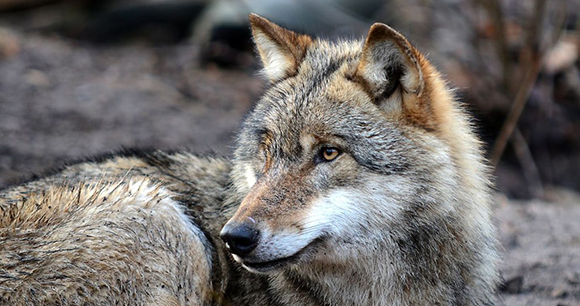
This was updated on May 15, 2018 to reflect additional amendments that were submitted.
Washington, DC—Today we learned the extent to which certain members of the US House of Representatives are willing to sacrifice animal welfare and conservation in the name of industry interests. The Farm Bill (H.R. 2, the Agriculture and Nutrition Act of 2018), scheduled to be brought to the House floor next week, already includes language that would seriously set back efforts to improve animal welfare at the state level (the so-called King amendment), and that would undermine the federal Endangered Species Act (ESA). Not satisfied with the damage these provisions would do, other members of the House have submitted additional destructive amendments to the House Rules Committee for approval to bring to the floor during Farm Bill consideration:
Representative David Rouzer (R-NC) introduced an amendment to absolve experimental laboratories of the very minimal requirement for an annual inspection by the USDA to ensure compliance with the basic animal care standards of the Animal Welfare Act. If approved, research facilities would only have to submit to USDA oversight of their use of animals once every three years. (Amendment #15)
Representative Thomas Massie (R-KY) introduced an amendment to expand uninspected custom animal slaughter, which creates food safety risks and an increased potential for inhumane treatment of animals. This amendment would allow meat from custom slaughter establishments to be sold in restaurants, hotels, and even grocery stores located in the same state as a slaughter plant. While AWI acknowledges that there is a problem with access to slaughter plants for higher-welfare farmers, increasing the prevalence of uninspected animal slaughter is not a solution. (Amendment #29)
Representative Bob Gibbs (R-OH) proposes to further amend the King amendment by extending its reach specifically to “animals,” in addition to “agricultural products.” In this way, the King amendment is made even more objectionable by ensuring that it applies to state laws designed to protect animals, such as puppy mill restrictions and prohibitions on the sale of shark fins. (Amendment #37)
Representative Dan Newhouse (R-WA) submitted an amendment to remove ESA protections for gray wolves across the continental United States. This would not only place gray wolves in peril, but also undermine the ESA by taking away the decision-making power from scientists, as the law mandates, giving it instead to partisan members of Congress. This amendment also blocks judicial review, meaning that citizens can’t challenge the delisting in court. Shielding agency actions from review by independent federal courts violates citizens’ rights under the ESA and is simply undemocratic. (Amendment #85)
An amendment offered by Representative Mike Johnson (R-LA) would amend the ESA by allowing federal agencies to approve a project that may jeopardize threatened or endangered species or their critical habitat if other protections exist or actions are proposed to improve that species’ habitat elsewhere. Currently, any agency planning a project is required to consider the effect it will have on listed species and critical habitat and incorporate strategies to minimize harm into the final plan. This amendment says that if off-setting conservation measures are already in place or are proposed, such as “management” of species habitat elsewhere, then the project can move forward regardless of the impact it will have on the critical habitat at the site of the project. It would be similar to the county being allowed to run a road through your house because you have relatives who have a house someplace else. (Amendment #94)
Representative Roger Marshall (R-KS) submitted an amendment to block the US Fish and Wildlife Service for a period of three years from taking any steps to list the lesser prairie-chicken under the ESA. First petitioned for listing in 1995, the bird was listed as threatened in April 2014, but the listing was overturned by the US District Court for the Western District of Texas in September 2015. The bird has lost more than 80 percent of its traditional habitat due to human activities such as oil and gas drilling, ranching, and construction of power lines and wind turbines. Its population declined by more than half just between 2012 and 2013. FWS is still evaluating whether the bird needs to be re-proposed for listing based on current conservation efforts and new data and the agency should be free to make that determination based on scientific information, not political considerations. (Amendment #104)
Representative Brian Babin (R-TX) submitted an amendment to strip ESA protections from species that are not native to the United States, including chimpanzees, tigers, elephants, and giant pandas. In direct opposition to public demand, the amendment would cripple the United States’ efforts to halt illegal wildlife trafficking—a multibillion-dollar-a-year industry that fuels drug cartels and other organized criminal activities—including by invalidating the FWS’s recent rulemaking aimed at closing long-standing loopholes that have allowed illegal ivory to be sold in the United States. This amendment also has detrimental implications for non-native species held in captivity in this country. It would allow game ranchers to breed and kill threatened and endangered species without a permit, remove ESA protections against mistreatment of zoo animals, and eliminate the prohibition on invasive experiments on chimpanzees. (Amendment #109)
The Animal Welfare Institute strenuously objects to these efforts to weaken widely supported laws that protect animals and the environment, and urges all members of the House of Representatives to oppose these amendments and to vote against H.R. 2.
(202) 337-2332, [email protected]